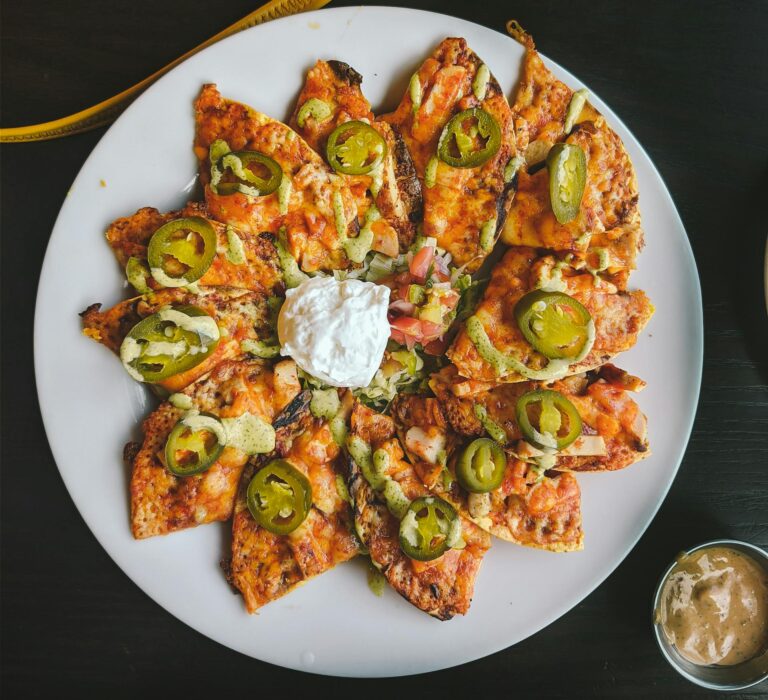Secretive Eating And Hoarding Junk Food: Understanding The Behavior
Secretive eating and hoarding junk food are big issues, hitting many people, mostly the young. These actions often come from deep emotional struggles and can harm our relationship with food. Believe it or not — studies show about 30% of adults secretly eat at some point, which can turn into binge eating disorder.
Feeling ashamed or guilty about food choices often comes from what society expects and how we see our bodies. It’s key to look into why these behaviors happen and how they show up.
Processed junk foods are made to be super tasty, making us want more and more. This can lead to hoarding food. Experts say secretive eating can cause weight gain, obesity, heart problems, and metabolic issues.
Of course, Junk Food is delicious, and we all have our pet cravings that drive us wild. From chocolate… to sour candies… to fast food… to donuts. But moderation is key. And knowing more about what we eat and how food fits in our overall physical, mental, and emotional picture can holy help us eat better and feel better!
Key Takeaways
- Approximately 30% of adults report engaging in secretive eating.
- Secretive eating can disrupt normal eating patterns and lead to binge eating disorders.
- Processed junk foods increase cravings and contribute to hoarding behaviors.
- Nutritionists emphasize the health risks related to secretive eating, including obesity.
- Childhood experiences and emotional distress can lead to hoarding or sneaky eating habits.
- Addressing root causes is essential to reverse these unhealthy eating behaviors.
What Is Secretive Eating Anyway?
Secretive eating is when people eat alone to hide from others’ judgment. It makes them feel ashamed and unsure about their eating habits. Research shows it starts in childhood, affecting up to 34% of kids. Knowing about it helps spot signs of binge eating disorder.
Definition and Overview
Secretive eating means eating alone because of fear of being judged. A study with 577 kids and teens found 111 struggled with it. This behavior can lead to emotional problems and even binge eating disorder.
Common Reasons for This Behavior
Many reasons lead to secretive eating, including:
- Fear of judgment from peers or family.
- Low self-esteem and body image concerns.
- Stressful family dynamics and unhealthy food culture.
- Desire for autonomy and control over food choices.
- Development of social anxiety disorders, such as deipnophobia, which results in an aversion to eating in front of others.
Up to 50% of adults with binge eating disorder eat secretly. Secretive eating is a big sign of binge eating, even if it’s not a full binge. People who eat secretly worry more about their weight, binge more often, and feel more depressed than those who don’t.
| Factor | Impact on Secretive Eating |
|---|---|
| Childhood Influence | Patterns can begin early, with youth showing significant engagement in secretive eating. |
| Binge Eating Disorder | Secretive eating serves as a hallmark of this disorder, influencing emotional and psychological well-being. |
| Emotional Regulation | Difficulties in managing emotions can contribute to the onset of secret eating behaviors. |
| Gender Differences | A greater proportion of women report engaging in secret eating compared to men. |
| Depressive Symptoms | Individuals with depression are significantly more likely to practice secretive eating. |
The Psychology Behind Hoarding Junk Food
Hoarding junk food is driven by complex psychological patterns. Emotional triggers lead to compulsive eating, causing guilt and shame.
Emotional Triggers
People often eat emotionally due to feelings of inadequacy, depression, or anxiety. The need to hoard junk food comes from a desire for comfort during tough times. This behavior gives temporary relief but leads to guilt and more hiding.
Life changes or emotional turmoil make food a coping mechanism. This perpetuates junk food addiction.
The Role of Anxiety and Stress
Anxiety and stress are key in compulsive eating. Stressors lead people to junk food for comfort. Eating high-sugar and high-fat foods gives a temporary relief, hiding emotional issues.
It’s important to recognize this pattern to break the cycle of unhealthy eating. Ignoring it can lead to more serious mental health problems. Addressing the emotional triggers is crucial.
Signs of Secretive Eating
Spotting the signs of secretive eating is key to tackling compulsive eating. People might show certain behaviors or feelings that show they’re struggling. Knowing these signs helps us offer support and help them change.
Behavioral Indicators
Secretive eating can show in different ways. Here are some common signs:
- Avoiding meals with family or friends
- Hiding food around the house to eat later
- Eating only healthy foods when others are present
- Sneaking snacks or sweets in private locations
- Stockpiling junk food in secret places
These actions can make people feel guilty or anxious about food. Spotting these signs helps us see who might need help to stop emotional eating.
Emotional Symptoms
Secretive eating often comes with emotional signs. These include:
- Feelings of shame or embarrassment related to eating habits
- A sense of loss of control during eating episodes
- Motivation rooted in anxiety or stress surrounding food
- Social isolation due to concern about judgment from others
These feelings can make emotional eating worse. Getting help or finding new ways to eat can lead to better habits.

Consequences of Hoarding Junk Food
Hoarding junk food can harm your health. People who eat compulsively might not see the dangers. It’s important to understand these risks to live healthier.
Physical Health Risks
Hoarding junk food can lead to serious health problems. Some of these include:
- Obesity: Many people with binge eating disorder struggle with obesity. This can cause more health issues.
- Metabolic Disorders: Eating unhealthy snacks can lead to metabolic syndrome. This increases the risk of diabetes and heart disease.
- Chronic Health Conditions: Long-term compulsive eating can lead to chronic illnesses.
- Hair Loss: Research shows a correlation with premature hair loss.
Mental Health Implications
Hidden eating behaviors can deeply affect your mental health. Some effects are:
- Anxiety and Depression: Binge eating can lead to increased anxiety and depression.
- Social Isolation: Secret eating can damage relationships and make you feel isolated.
- Low Self-Esteem: Compulsive eating can make you feel ashamed and lower your self-esteem.
How Secretive Eating Develops
Secretive eating starts with early life events and cultural norms. These factors shape how we feel about food. Childhood experiences often set patterns that last into adulthood.
Childhood Experiences
Secretive eating often begins in childhood. Family rules and body image pressure can make eating feel shameful. Kids who feel ignored might hide their eating, seeing food as comfort and guilt.
Studies show kids with these issues feel guilty and ashamed about eating. These feelings can last a lifetime, creating unhealthy food habits.
Cultural Influences
Culture affects how we see our bodies and eat. Unrealistic beauty standards can lead to unhealthy food habits. Diet culture pushes for strict eating and shames binge eating, leading to secrecy.
Emotional stress can make addictive eating worse, leading to binge eating often. Cultural expectations add to feelings of shame and guilt, making secretive eating harder to break.
Strategies to Combat Secretive Eating
Secretive eating is a complex issue that needs a multi-faceted approach. It involves improving emotional awareness and building supportive relationships. By using different strategies, people can develop healthy eating habits and tackle the emotional reasons behind their actions.
Mindfulness Techniques
Mindfulness can greatly help reduce secretive eating. Here are some techniques:
- Stay present during meals, enjoying each bite fully.
- Identify emotional triggers for secret eating, helping manage them better.
- Try calming activities like meditation and deep breathing to reduce stress.
- Keep a food diary to track eating habits and find patterns.
Building a Support System
Having a support network is key to fighting secretive eating. Friends, family, or therapists can provide a caring space. Sharing experiences and encouraging open talk helps in many ways:
- Get emotional support and positive feedback when needed.
- Work together on healthy eating goals, creating accountability.
- Discuss food choices and behaviors openly, without judgment.

Using these strategies can improve your relationship with food. It promotes self-acceptance and understanding of emotional triggers. This approach is vital for lasting success in overcoming secretive eating.
The Role of Environment
The environment plays a big role in how we eat, including compulsive eating. Easy access to junk food can lead to unhealthy eating habits. Homes that make unhealthy snacks normal can encourage secret eating, as people might feel okay to hide these foods.
Impact of Accessibility to Junk Food
Studies show that kids in homes with food scarcity might develop Sneaky Eating Behaviors (SEBs). When they get their favorite foods, they might eat too much. This shows how our home environment affects our food choices and our relationship with food.
Parents are very important in shaping these habits. By setting clear rules about when and where to eat, they can help their kids eat healthier. Sharing meals and snacks together can also help avoid secret eating.
Family Dynamics
Family dynamics greatly influence our eating habits. Emotional eating can be triggered by different events or feelings, leading to cravings for certain foods. Feelings like guilt or shame can make kids hide or hoard food to satisfy these cravings.
About two-thirds of people with eating disorders also have anxiety disorders. There’s a link between ADHD and binge eating, showing the importance of mental health in food discussions. These factors can raise the risk of a child developing an eating disorder through secret eating or hoarding.
Seeking Professional Help
For those dealing with secretive eating and food hoarding, getting professional help is key. Knowing when to see a therapist is a big step. If you feel overwhelmed or struggle to function daily, it’s time to seek help. Food issues can cause a lot of emotional pain, so finding a specialist is crucial.
When to Consult a Therapist
There are many reasons to see a therapist, such as:
- Persistent feelings of guilt or shame related to eating habits.
- Inability to control overeating or food-related behaviors.
- Experiencing anxiety or stress in social situations involving food.
- Noticing a significant decline in physical or mental health.
- Hiding food or consuming large quantities in secret.
Types of Therapy Available
There are many therapies for compulsive eating. Some include:
- Cognitive Behavioral Therapy (CBT): Changes unhealthy food-related thoughts.
- Dialectical Behavior Therapy (DBT): Teaches emotional control and mindfulness.
- Interpersonal Therapy (IPT): Looks at how personal issues affect eating.
- Support Groups: Provides community support and encouragement.
Professional help can greatly improve your relationship with food. It helps with both emotional and physical health. The right therapy can help you understand and change your habits, leading to a better self-image.
Understanding Food Addiction
Food addiction is like substance abuse, showing a deep psychological battle. It often goes hand in hand with binge eating disorder. It’s key to understand these links to find ways to overcome it.
Similarities with Substance Abuse
Food addiction has many similarities with drug or alcohol addiction. People with it have strong cravings that lead to binge eating. This is fueled by emotional triggers, making eating alone or too much food a big issue.
Knowing these similarities helps us see the need for help and support. It’s a cycle of addiction that’s hard to break.
Steps to Overcome Food Addiction
Managing food addiction requires several steps. Therapy, like Cognitive-Behavioral Therapy (CBT), is very helpful. It helps tackle the underlying issues.
Nutritional education is also key. It teaches about balanced diets and controlling portions. Support groups, like Overeaters Anonymous, offer much-needed support.
Creating aftercare plans and using relapse prevention strategies is crucial. These steps help maintain progress.
Awareness and Education
It’s important for families to talk openly about secretive eating and hoarding junk food. This helps spot early signs and leads to healthier talks. Learning about secretive eating together builds understanding and kindness.
Importance of Awareness in Families
Creating a space where food talks are normal is key. Knowing the signs of secretive eating, like hiding food, helps families talk about it gently. This leads to better support and ways to cope. It makes kids and teens feel safe sharing their eating habits.
Resources for Lifelong Learning
Families can keep learning about secretive eating through many resources. Workshops teach signs and how to manage them. Books on healthy eating and emotional health offer insights. Online forums provide support and shared experiences. Using these tools keeps the conversation going, ensuring everyone understands the importance of healthy eating.
| Resource Type | Description | Access Method |
|---|---|---|
| Workshops | Interactive sessions that teach families about healthy eating and coping with disordered eating. | Local community centers or online platforms. |
| Books | Literature on secretive eating, emotional health, and management strategies. | Libraries, bookstores, and online retailers. |
| Online Forums | Virtual communities for sharing experiences and support related to eating behaviors. | Social media platforms and dedicated mental health websites. |
Moving Towards Healthier Habits
Changing to healthier eating habits is a big step towards overcoming secret eating and hoarding junk food. A balanced eating plan that includes many foods is essential. This approach lets people try different foods while aiming for health goals.
Adding colorful fruits, vegetables, lean proteins, and whole grains makes a plan nutritious. It helps build a good relationship with food.
Creating a Healthy Eating Plan
Having a well-rounded meal plan is important. But, being kind to oneself while eating is even more crucial. This kindness helps when mistakes happen, making it easier to handle.
Remembering that nobody is perfect can really help. Focusing on overall wellness, not just weight, helps break down barriers. It encourages a healthier lifestyle for the long term.
Importance of Self-Compassion
Letting go of the need to fit societal beauty standards is important. Talking openly about body acceptance and health helps. It shows that worth isn’t just about looks.
Teaching kids about eating when they’re hungry and stopping when full is key. It helps them develop a healthy relationship with food early on. This sets them up for a lifetime of good eating habits.







